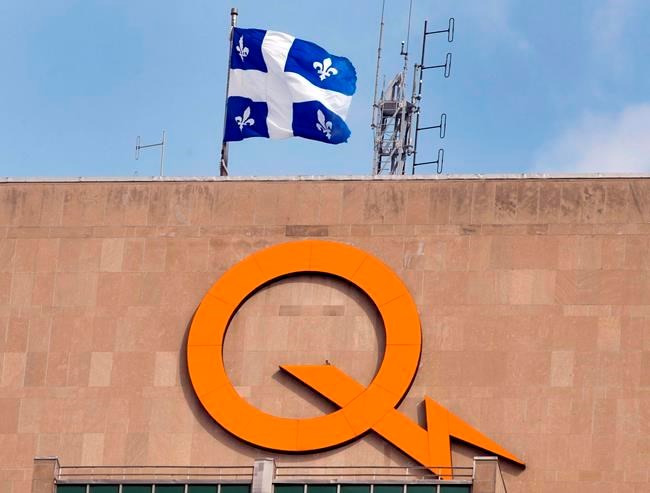PORTLAND, Maine — The fate of Hydro-Québec's US$1-billion interconnection line went before Maine's Supreme Court on Tuesday, which will have to decide whether to validate the project even though a majority of voters in the state rejected it.
Fifty-nine per cent of Maine voters last November voted against the project — a 336-kilometre power line that would bring electricity from Quebec to Massachusetts. Voters didn't want the line running through their state.
But Quebec's hydro utility and its partner, New England Clean Energy Connect, allege the referendum results are unconstitutional. They say the project has an acquired right to move ahead, as NECEC has already spent nearly US$450 million on the proposal, which is about 43 per cent of its anticipated costs, according to court filings.
Most of the proposed power transmission line — about 233 kilometres — would be constructed along existing corridors. However, a new 85-kilometre section must be built through the Maine woods to reach the Quebec border.
Critics contend the environmental benefits are overstated and that the project would forever change the forestland. Supporters, meanwhile, argue bold projects are necessary to battle climate change and that the electricity is needed in a region heavily reliant on natural gas.
Work on the electricity export project has been suspended since November's referendum.
Maine's Supreme Court is hearing two appeals on Tuesday involving the hydro project. Firstly, the court has to decide whether the referendum results are unconstitutional. Secondly, the court is being asked to green-light permits for a 1.6-kilometre portion of the line, which were invalidated by a Maine Superior Court judge, even though the permits were first granted by the state government in 2014.
A spokeswoman for the Quebec utility says a ruling on either case isn't expected until later in the year.
NECEC is contractually obligated to complete the line by Aug. 23, 2024, but could extend that deadline by a year for a penalty of US$10.9 million. The project was originally scheduled to be completed by the end of 2022.
Despite the setbacks, Sophie Brochu, Hydro-Québec's president and CEO, told a Quebec parliamentary hearing last week she still believes in the merits of the project.
The contract was expected to bring in nearly $10 billion in revenue over 20 years for Quebec's utility, which has said the project would reduce greenhouse gases by three million tonnes, the equivalent of taking 700,000 cars off the road. If the project doesn't go ahead, Hydro-Québec estimates that it will have to record a loss of $536 million.
In 2019, Hydro-Québec also recorded a loss of $46 million after the Northern Pass project failed to get approval. That transmission line would have carried Quebec's electricity to Massachusetts through New Hampshire. The utility abandoned that export plan because of public opposition.
This report by The Canadian Press was first published May 10, 2022.
— with files from Stéphane Rolland in Montreal and The Associated Press.
The Canadian Press

